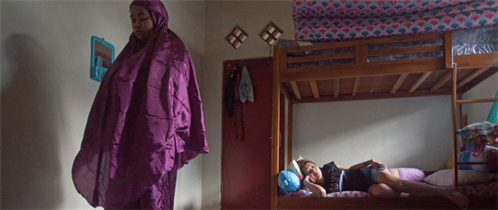The butterfly community: A movement of women who use drugs in Indonesia
Risma is familiar with the harms that women can face in Indonesian prisons; in 2006, she was sentenced to 18 months incarceration after being caught with a small quantity of drugs.
22 Aug 2017Today, Risma is a health and human rights activist: “I was one of the beneficiaries of an NGO peer education programme in the women’s prison. I was released early for good behaviour and immediately joined the NGO as a volunteer.”
Working as a peer educator, Risma met women who had used drugs and faced debilitating stigma. Unwilling to accept this marginalisation for herself or her peers, Risma set up phone support and counselling to assist women in standing up to fight for their health and rights. “I realised there were many of us.”

The phone calls became meetings, and as the meetings slowly grew, they became known as the Women Butterfly Community. Many — particularly women who had spent time in prison—were ashamed and found it difficult to discuss their traumatic experiences in person. “We cried listening to each other’s stories.”
Risma explains: “I like the idea of a butterfly. When it is a caterpillar, it is not liked by anyone, so it keeps to itself. But once it becomes a butterfly, it goes out into the world and finds love and support.”
As a mother of three children, Risma is well aware of the many complex challenges facing women who use drugs. Despite the fact that the majority of people who use drugs in Indonesia are male, research indicates that women are incarcerated for non-violent drug offences more than for any other crime. Women who use drugs face stigma and discrimination on multiple levels, and often have reduced access to health and support services.
Click here to read the full article
If you have any comments please tweet us @idhdp or visit our facebook page
Doctors can lead the way to healthier drug policies – join IDHDP now
Share this on: